Social Engagement
The IHES concept ("Internationalization of Higher Education for Society") aims to establish a link between projects and activities that contribute to the internationalization of the university and which at the same time belong to the field of social engagement.
This generally refers to cooperative exchange relationships of the university with society for mutual benefit. These activities are also an integral part of the university. This approach is also associated with the hope of being able to address pressing and now ubiquitous social problems, such as the integration of refugees, radicalization or climate change. Since these are often transnational and global in scope, this raises the question of what contribution internationalization can make to solving these problems.
The concept was developed as part of a DAAD study by Prof. Dr. Uwe Brandenburg, Prof. Dr. Hans de Wit, Prof. Dr. Betty Leask and Prof. Em. Elspeth Jones. In the publication „Internationalisation in Higher Education for Society (IHES) - Concept, Current Research and Examples of Good Practice, 2020" they define IHES as follows:
"Internationalisation of Higher Education for Society (IHES) explicitly aims to benefit the wider community, at home or abroad, through international or intercultural education, research, service and engagement").
The study notes that the link between higher education's social responsibility or community engagement and internationalization is often missing. We want to address this "missing link" and show how internationalization processes at the university can also contribute to the positive development of the regional environment.
IHES Projects at TU Dortmund University
In order to ensure an institutional anchoring of Third Mission activities with an international dimension and to integrate them firmly into international events, the existing Third Mission activities are collected and portrayed at this point.
Characteristics of IHES projects are
- Who benefits from the activities? - IHES activities deliberately and consciously aim to provide benefits to society per se. Activities are carefully planned, evaluated, and their impact/effect on society is visible in some way.
- Are stakeholders outside the university involved? - IHES involves the broader society, whether at home or abroad. It can bring the global into the local, or the local into the global, or both.
- What areas at the university get involved? - IHES can take place in all areas of the university: Teaching, research, and social responsibility (see "Internationalization in Higher Education for Society" (IHES), 2020, p. 28).
At TU Dortmund University, there are already a number of diverse projects that could be subsumed under the IHES umbrella, but - also because it is a comparatively young concept - may not yet be assigned to it.
This list is not complete and we welcome suggestions and feedback!
Building Bridges to the Local and Regional Economy
As prospective academics, international graduates are highly sought-after specialists. Two projects in particular are important for bringing them together with players in the local and regional economy:
For ten years now, the International Career Fair has been bringing together qualified young academics with companies from Dortmund and the region. It is planned and implemented in cooperation with the Dortmund Chamber of Industry and Commerce (IHK). In this way, the fair helps to bring the internationalization of universities to companies - to the benefit of both sides.
The new mentoring program "Tandem2Job" focuses on the personal exchange of experience: Here, mentees with professional experience give an insight into the specific professional fields, activities and structures of your company.
specific occupational fields, activities and structures in their sector and actively support students with and without a refugee background in the transition between university and the labor market.
"Europa macht Schule" (Europe meets School)
The "Europa macht Schule" (EmS) program brings students and pupils together in one classroom. As the voice of their home country, students design their own creative project to bring pupils closer to your culture and history. EmS is not only aimed at Europeans, but at students from all over the world. You can find more information for students and teaching staff on our "International Campus" pages.
Offers for Refugees
TU Dortmund University supports refugees with language acquisition, study applications, questions regarding study financing, scholarship programs and social integration at TU Dortmund University. The Refugee Couseling and Integration Office is the first point of contact for prospective students with a refugee background, as well as for academics and researchers who have fled or are at risk.

Certificate "Studium International"
The Certificate "Studium International" acknowledges international activities of TU Dortmund University students that are carried out in addition to their studies, i.e. on a voluntary and/or honorary basis. Many students use their studies to make the campus more international, to broaden their horizons with their own stays abroad, or to further their education in foreign languages. The certificate summarizes all these activities in a clear and descriptive way.
The structure provides for various components. Module C - Internationally Engaged - now also includes a Track 2, with which engagement with an international connection can also be credited outside the TU Dortmund - e.g. in projects of public institutions, the city of Dortmund, etc. - as well. - can be credited.






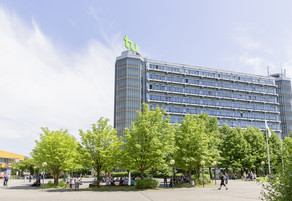
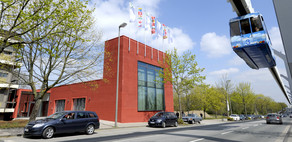


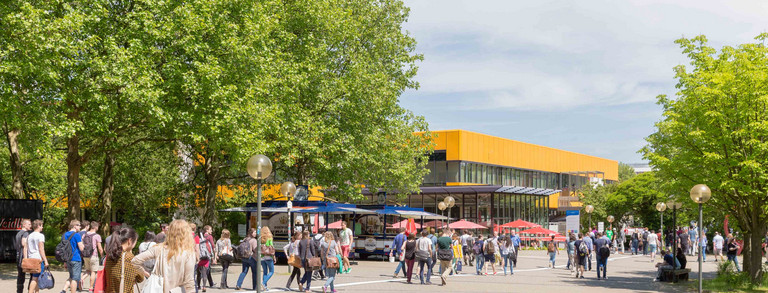
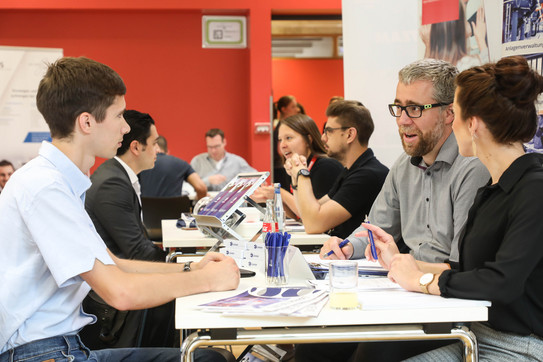
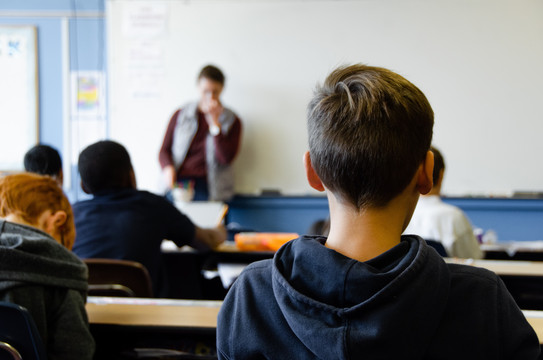
![[Translate to English:] [Translate to English:]](/storages/international/_processed_/2/8/csm_ZSI_schiff_dfc1f04e27.jpg)